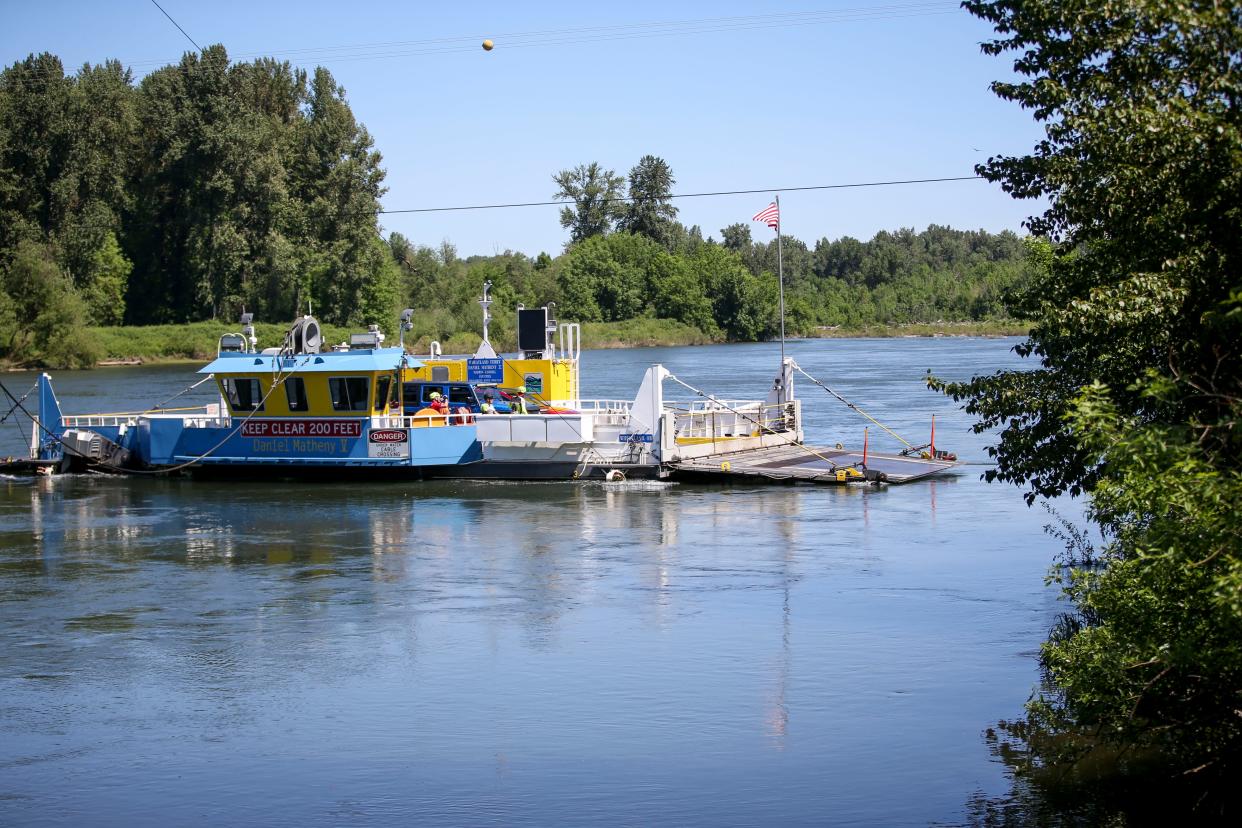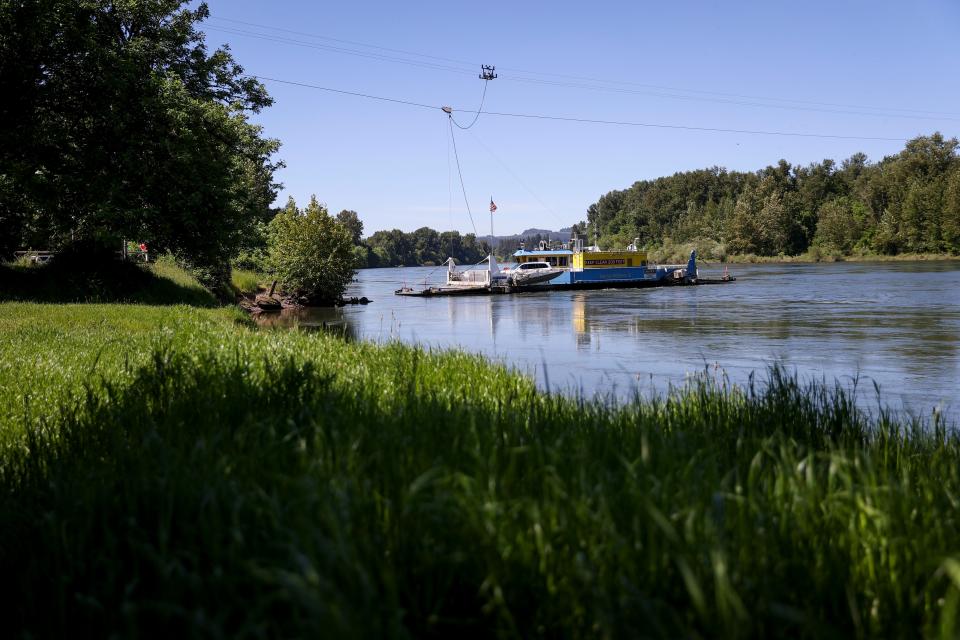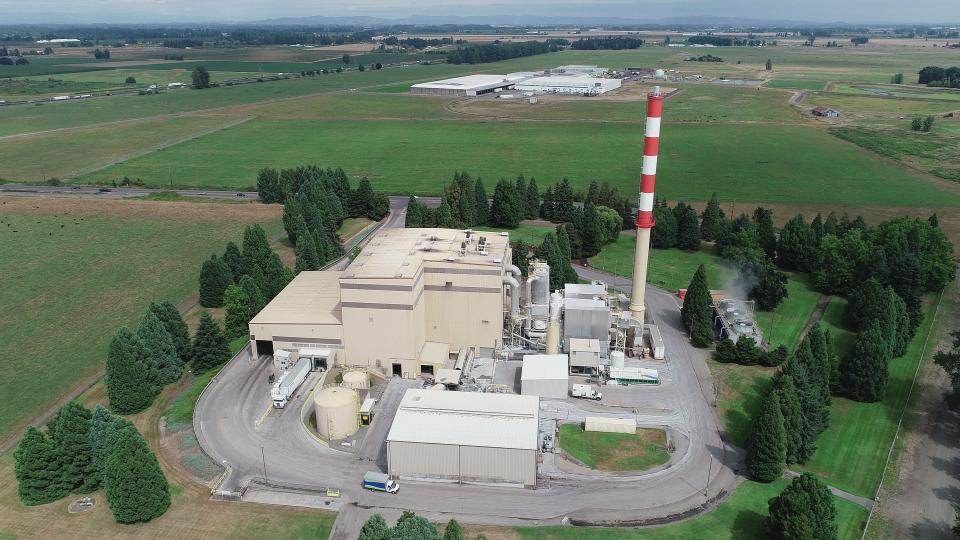Brooks incinerator submits plan to reduce mercury releases into Willamette River

Reworld Marion, the municipal waste incinerator in Brooks, no longer releases mercury into the Willamette River, company officials have told the Oregon Department of Environmental Quality, nine years after regulators began raising concerns about those releases.
Covanta Holding Corp., the New Jersey-based company that operates the incinerator, recently changed its name to Reworld.
The facility uses well water for flushing built-up minerals from its boiler and cooling tower. That water — about 88,000 gallons per day — then is treated and sent six miles via a 12-inch pipe to the Willamette River at milepost 71.7, near the Wheatland Ferry.
The company adds sulfuric acid, which contains trace amounts of mercury, to the water to adjust its pH, according to DEQ documents.
At DEQ's request, in January 2015, the company sampled water at the river outfall and detected a mercury concentration of 1.5 nanograms per liter.
The company also tested at source water wells and within the facility.
"The facility's one-time mercury sampling event showed that there are mercury sources entering the waste stream that do not originate from the intake water," DEQ officials wrote at the time.
Separate testing showed the Willamette exceeds water quality standards for mercury in that section of the river.

In 2016, DEQ drafted a wastewater discharge permit renewal that gave the company two years to come up with a plan to reduce the amount of mercury it releases to the river.
The proposed permit then was put on hold, while regulators awaited federal rule changes governing mercury levels in the Willamette River. Those changes were final in 2021; the company's new permit became effective April 1, 2022.
The new permit does not have a mercury limit but requires Covanta to show how it will monitor and minimize mercury releases. Mercury is toxic to aquatic life and bioaccumulates in fish tissue, which could pose a health risk to people eating fish from the river.
Reworld says its tests show low to no levels of mercury without making any changes
In the permit, DEQ ordered the company to complete a mercury minimization plan by May 15, 2024. It also required the company to immediately begin quarterly mercury sampling.
DEQ officials familiar with the plan have not been available to speak about it the past few weeks because of vacations, DEQ spokesman Dylan Darling said.
Reworld officials did not respond to the Statesman Journal’s interview requests.
The plan shows Reworld completed three mercury tests, in the second quarter of 2022, the first quarter of 2023 and the first quarter of 2024.
The 2022 test detected a mercury concentration of 1.21 nanograms per liter, while the other two tests did not detect mercury.
“The sampled mercury concentration has been either non-detect or very close to the minimum detectable levels over the past five years,” the company wrote in the plan.
Testing data submitted with the plan shows the company has monitored for two years, not five. It also shows that the company has done yearly, not quarterly monitoring.
“As part of the follow up to the mercury minimization plan DEQ will check with Reworld to verify that all tests have been included in the report, and sampling is aligned with its permit,” Darling said.
The document does not include the dates of testing or methods used.
"This will be requested by DEQ as part of the updates to the mercury minimization plan," Darling said.
Reworld states in the plan that no changes were made to its processes.
“Reworld will continue with no changes to operation unless mercury levels increase above detectable levels and require a reassessment for potential changes to the operation,” company officials wrote.
DEQ to put mercury minimization plan out for public comment
DEQ officials will review the plan before putting it out for public comment. There is no deadline to complete that review, Darling said. If DEQ asks for changes, Reworld will have 60 days to revise the plan.
The public comment period will last a minimum of 35 days, he said.
Once approved, the plan will become part of the company’s wastewater discharge permit, which expires Jan. 31, 2027.
DEQ’s water quality program last inspected the facility on Oct. 18, 2014.

Reworld Marion's air emissions also under scrutiny
Reworld Marion is Oregon’s only municipal waste incinerator.
Its parent company, New Jersey-based Reworld, operates more than 40 incinerators in North America, Europe and the United Kingdom. In 2021, Reworld, then called Covanta Holding Corp., was purchased by Sweden-based investment conglomerate EQT Infrastructure.
The 37-year old burner, located north of Salem, was built as a partnership between Marion County and Reworld.
In July 2021, Marion County left the partnership. It now pays Reworld a flat fee to take a set amount of the county’s garbage.
In June 2021, a Statesman Journal investigation determined that during a one-year period, Reworld accepted about 6,000 tons of industrial waste from businesses and organizations based in 19 Oregon counties; in California, Washington, Nevada, Utah and Georgia; and in Ontario and British Columbia, Canada.
The waste included oily debris, paint and rubber waste, toner waste, HVAC filters, polyurethane foam packaging, pharmaceutical waste, corn and soybean seeds.
Reworld Marion also has taken increasing amounts of out-of-state medical waste over the past few years. Health and environment groups say burning the plastics in medical waste can produce more harmful emissions, particularly dioxins/furans, than burning household and business waste.
The facility was among the first to be called into former Gov. Kate Brown’s Cleaner Air Oregon initiative, which closed a loophole in state law that allowed polluters to emit dangerous levels of toxic chemicals while operating legally.
That review, which began in 2020, is ongoing.
And in 2023, the Oregon Legislature passed the nation’s strictest municipal waste incinerator monitoring rules.
Senate Bill 488 will require Reworld Marion to continuously monitor carbon monoxide, sulfur dioxide, nitrogen oxides, opacity, PCBs, dioxins/furans, cadmium, lead, mercury, arsenic, total chromium, manganese, nickel, selenium and zinc.
Tracy Loew covers the environment at the Statesman Journal. Send comments, questions and tips: tloew@statesmanjournal.com or 503-399-6779. Follow her on Twitter at @Tracy_Loew
This article originally appeared on Salem Statesman Journal: Brooks incinerator submits plan to reduce mercury releases

